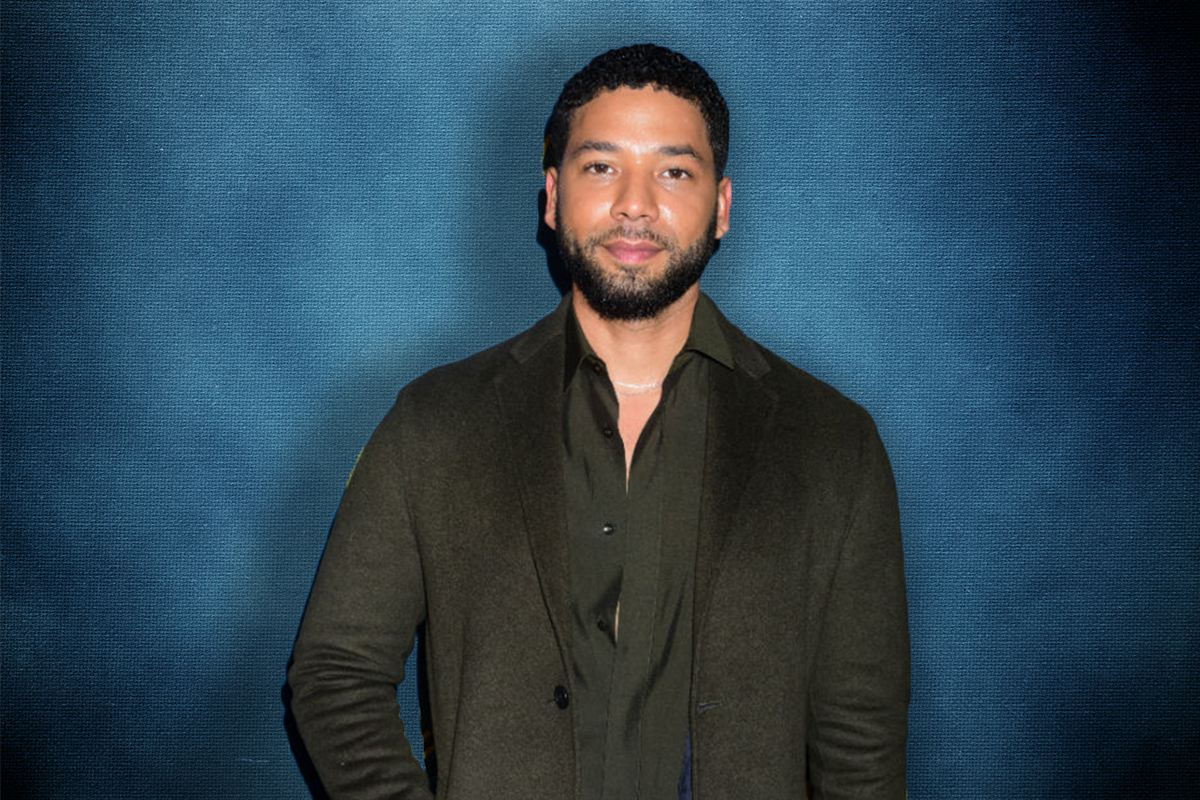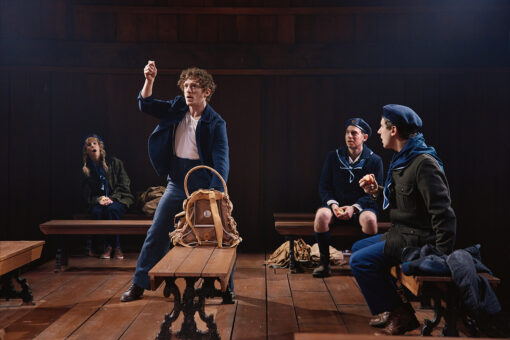After days of unconfirmed statements being made and then retracted by the Chicago Police Department, Jussie Smollett has been arrested. The Empire star is charged with fabricating a police report regarding his account of a racist and homophobic hate crime he allegedly endured in January.
Soon after this story broke, many said those who unquestionably believed Smollett’s account of events were blinded by their misguided hate of Donald Trump. In The Hill, writer Jess Cortese stated that “the vigor in which the media reported Smollett’s allegation and the fervor with which politicians spread it as evidence of Trump-induced hate shows the abhorrent nature of partisan politics today.” Cortese went on to criticize LA Weekly’s Michael Cooper for writing that “this kind of racist and homophobic behavior is running rampant in American [society] today, especially living in Trump’s America.”
But Cooper’s statement is a factual statement, not a biased one. Hate crimes have increased since Donald Trump’s election — 2018 saw a record number of hate groups, and 100 anti-Semitic incidents were reported within 10 days of the 2016 election. Many argue Trump’s anti-immigrant and anti-Semitic rhetoric inspired the horrific Tree of Life massacre in Pittsburgh. And Black Americans have consistently experienced more hate crimes than any other marginalized group in the country.
While the vast majority of hate crimes go unreported (especially when the victims are Black, since they often fear re-traumatization from police interactions or not being believed). Many police departments will not even classify hate crimes as such, making it even harder for marginalized people to receive justice. And false reports of hate crimes are incredibly rare.
As people living in what researchers call “an era of ascendant white nationalism,” we had no reason to doubt Smollett. The urgency and feasibility of his story were exactly what made it so resonant, not our dislike of Donald Trump.
In fact, The Washington Post recently reported the arrest of a would-be domestic terrorist, Christopher Hasson, a Coast Guard lieutenant and white nationalist who was planning horrifically large-scale mass murders. Hasson wrote that he wanted to establish a “white homeland” and was “dreaming of a way to kill almost every last person on the earth.” Donald Trump took time to castigate Smollett on Twitter, branding the actor as a racist, but he didn’t take any time to address Hasson, who was on a mission to murder Trump’s enemies.
Unfortunately, the dangers that people of color, LGBTQIA+ people, Jews, and Muslims face are real. They’re not contrived. Framing our faith in Jussie’s story as mere petty partisan drama is dishonorable to all victims of hate crimes, living and dead. Hate crimes are prevalent in our country, and yes, we should still believe the people who come forward, regardless of the outcome of Smollett’s case. Make no mistake: This is still “MAGA country.” Whatever happened with Jussie doesn’t change that.
But as the Chicago Police Department releases more and more damning information regarding Smollett’s case, conservatives have continued to mock and push back against those who believed Smollett when he first reported. And not only does this harm victims of hate crimes, but it’s harming sexual assault survivors as well.
The mockery of those who believed and supported Smollett is rooted in the backlash that conservatives mounted against the #MeToo Movement, whose rallying cry of “believe women” and “believe survivors” drew the ire of those who felt that these phrases ignored the need for concrete proof and thorough investigations. In the days since Smollett’s arrest, I’ve seen that toxic conversation reignited. My social media is filled countless commentaries that claim Smollett is making it harder for “real victims” and that women accused of lying about sexual assault should also be arrested.
But the people who are using Smollett’s case as a reason to cast doubt on reports of violence were going to do that anyway. And that’s because we live in a culture that holds the practice of victim-blaming as one of our core values. We blame victims of racist hate crimes if their stories are too “theatrical.” We blame victims of sexual assault if they wait too long to report. And we blame people who experience racist or homophobic micro-aggressions, suggesting that they’re “misinterpreting things.”
And it’s because of our victim-blaming culture that makes believing survivors so important. When I first heard of the alleged attack, I didn’t believe Smollett because I hated Trump, or because I accept everything anyone tells me. I believed Smollett because we live in a world where so many survivors of violence aren’t believed, and they need someone to listen. I don’t regret believing Smollett, I refuse to apologize for it, and I would do the same for anyone else who reports a violent hate crime in the future. We all should.
Besides, many people, including myself, have a hard time unequivocally accepting the narrative of the Chicago Police, even though the stated evidence against Smollett is sizable. Not only did CPD release several conflicting statements before Smollett was arrested, but the police department has a long, sordid history of corruption, murder of Black people, and human rights violations.
Whether he is found guilty of deceiving the public or not, Smollett is not causing survivors of violence to go unbelieved. He didn’t create the culture that we live in, where we’ve normalized the delegitimization of people’s fears and experiences of bigoted hate. Like writer Bree Newsome Bass tweeted, “If you choose to not believe victims in the future, that’s a choice you are making and [you’re] using this incident [with Smollett] as an excuse.”
Smollett’s story is getting a lot of attention because of his visibility as a famous actor. Everyone is weighing in with their opinions, their expressions of support, or their statements of condemnation. But it’s important to remember that Black queer men like Smollett are at risk every day and that many of them are scared to report because they fear they won’t be believed. We can’t use this salacious story to erase the very real pain and danger that these men face — that all queer people of color face.
There are many ways to talk about the Jussie Smollett case. Please don’t use this story as an excuse to make victim-blaming statements about people who have experienced violence or the people who face the risk of experiencing that violence.



